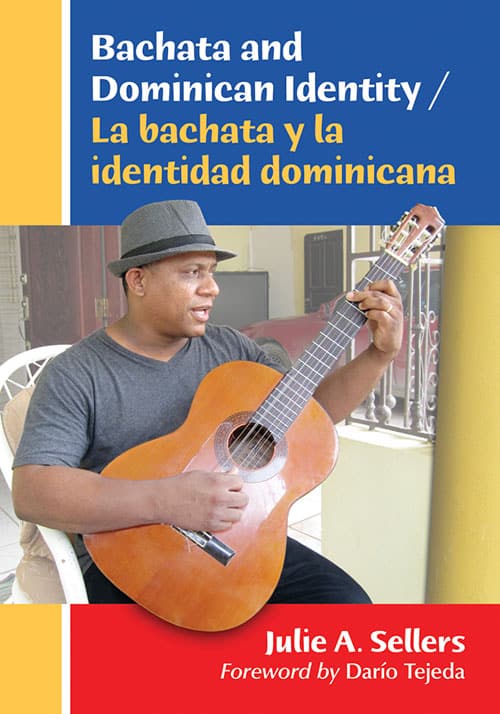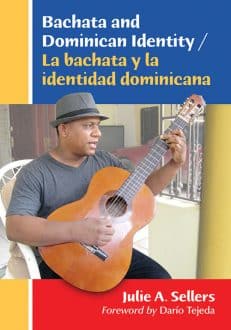Bachata and Dominican Identity / La bachata y la identidad dominicana
$35.00
In stock
About the Book
Bachata—a guitar-based romantic music that debuted in Santo Domingo’s urban shantytowns in the 1960s—is today one of the hottest Latin genres. Still, fans and musicians have not forgotten the social stigma the genre carried for decades. This book interweaves bachata’s history and development with the socio-political context of Dominican identity. The author argues that its early disfavor resulted from the political climate of its origins and ties between class and race, and proposes that its ultimate acceptance as a symbol of Dominican identity arose from its innovations, the growth of the lower class, and a devoted following among Dominican migrants.
******************************************************************
La bachata—una música de guitarra que se estrenó en los barrios populares de Santo Domingo en los años 60—hoy, es uno de los géneros latinos más populares. No obstante, sus aficionados y sus exponentes recuerdan el estigma social asociado que conllevó por décadas. Este libro entreteje la historia y el desarrollo de la bachata con el contexto socio-político de la identidad dominicana. La autora plantea que su desaprobación temprana resultó del clima político en que nació y los vínculos entre raza y clase social. Propone que su aceptación final como símbolo de identidad dominicana surge de sus innovaciones, el crecimiento de la clase baja y sus seguidores leales entre los migrantes dominicanos.
About the Author(s)
Bibliographic Details
Julie A. Sellers
Foreword by Darío Tejada
Format: softcover (7 x 10)
Pages: 304
Bibliographic Info: 43 photos, notes, bibliography, index
Copyright Date: 2014
pISBN: 978-0-7864-7673-2
eISBN: 978-1-4766-1638-4
Imprint: McFarland
Table of Contents
English
Foreword by Darío Tejada 3
Preface 8
Introduction 11
One. Situating Bachata: Naming and Claiming a Genre 19
Two. Interpreting Dominicanidad 33
Three. Dictatorship and Nation-Building: The Era of Trujillo 42
Four. The Dawn of Bachata 48
Five. Bachata’s Many Faces: From the Red-Light District to Rose-Colored Bachata 59
Six. Romantic Bachata 72
Seven. The Dominican Transnational Community and Bachata Típica 83
Eight. United States and Mainstream Modern Bachata 89
Nine. Las Bachateras 107
Conclusion 116
Notes 119
Illustrations ILUSTRACIoNeS
Español
Prólogo de Darío Tejada 155
Prefacio 160
Introducción 163
Uno. La contextualización de la bachata: Ponerle nombre a un género y reivindicarlo 171
Dos. La interpretación de la dominicanidad 186
Tres. La dictadura y la construcción nacional: La Era de Trujillo 196
Cuatro. Los albores de la bachata 202
Cinco. Las muchas caras de la bachata: Desde la zona roja a la bachata rosa 213
Seis. La bachata romántica 226
Siete. La comunidad dominicana transnacional y la bachata típica 237
Ocho. La bachata norteamericana y la bachata moderna de la corriente dominante 243
Nueve. Las bachateras 262
Conclusión 271
Notas 274
Works Cited / Obras citadas 281
Recordings Cited / Grabaciones citadas 287
Index / Índice 291
Book Reviews & Awards
• “Dr. Julie Sellers tackles a musical genre that has become a sign of identity among Dominicans. It is a social X-ray in which bachata synthesizes traits of the people of Quisqueya (Dominican Republic) constructed throughout that country’s history. Additionally, this book is the result of rigorous research that includes the testimony of important representatives of this musical expression.”—Alexis Méndez, host, Música Maestro
• “La Dra. Julie Sellers aborda un género musical que se ha convertido en un signo identitario de los dominicanos. Se trata de una radiografía social donde la bachata sintetiza rasgos de la gente de Quisqueya, construidos a lo largo de la historia dominicana de este país. Además este libro es resultado de una rigurosa investgación que involucra testimonios de importantes representantes de esta expresión musical.”—Alexis Méndez, conductor de “Música Maestro.”





